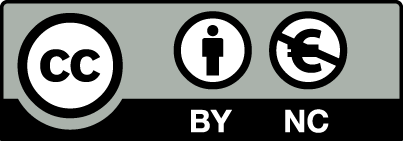
Lessons on democracy from Iran
Learning From Undemocratic Systems
We can loosely define democracy as a system where political power is shared. A dictatorship or oligopoly, on the other hand, represents a system where power lies with a few. To improve our democratic system, it is useful to learn from good examples. But equally important, and actually much clearer, is to learn lessons from a ‘bad’ example. And that is what Iran, a dictatorship that wants so badly to appear democratic, including a presidential election, is ideal for!
How Iranian Elections Work
The Iranian elections can be summarized in one preliminary round, followed by one or two public election rounds. That looks like this:
- The Guardian Council decides in the preliminary round which candidates can go to the first round of the elections.
- Citizens can vote in a first public round. When a candidate gets a majority, it stops there. If not, a second round will be held with only the two candidates who received the most votes in the first round.
Hidden Power in Electoral Systems
With a turnout of 39.93%, we can hardly speak of large democratic support for any candidate. Even if a candidate wins a majority. In my opinion, this indicates that many Iranians also experience the system as ‘non-democratic’.
Iran’s voters are choosing between the plague and cholera. They can actually only express their opinion about who is the better (or less bad) candidate. When there is “a majority”, it is only a majority about who is the least bad candidate (option A vs option B).
They make this choice based on the choices made by the Council of Guardians. Although this Council cannot decide who is the best, it can decide who is good enough (option A vs. option non-A). It is of course that second decision that holds the most power. The Council of Guardians will always be able to stop anyone, while a candidate can/will always be forced on the public.
How Parties Control Democracy
So not only intuitively, but also objectively, this can hardly be called a democracy. My conclusion is that we recognize this system not only in Iran, but also in our Western political systems.
When Western countries choose their leaders, such as France or the USA, the public only has the power to choose who is the least bad, which all too easily leads to a race to the bottom.
In these countries we do not formally see a Council of Guardians, but there is a restrictive party system that de facto acts as a ‘Council of Guardians’. This partocracy makes it very difficult to become elected as a moderate outsider. Radical outsiders therefore benefit very much to the prevailing dissatisfactions. Because it is not possible to reject a candidate in our current system, these radical figures become the only alternative for those who want to express their dissatisfaction. In the USA, a presidential election may be held* for a third time in a row in November between very unpopular candidates. In France, the next presidential election will also provide a choice between an extreme right-wing candidate and a candidate who will profile himself as “the saviour of democracy”.*
It is time that we really take the citizen seriously and let him/her decide whether each individual candidate is suitable. However, this requires that we leave behind our current systems, in which political parties hold particularly great power. But this will mean that we no longer have to fear for bad candidates and vote in fear.
* This opinion was written in the first half of July 2024, before the French and US presidential election.
